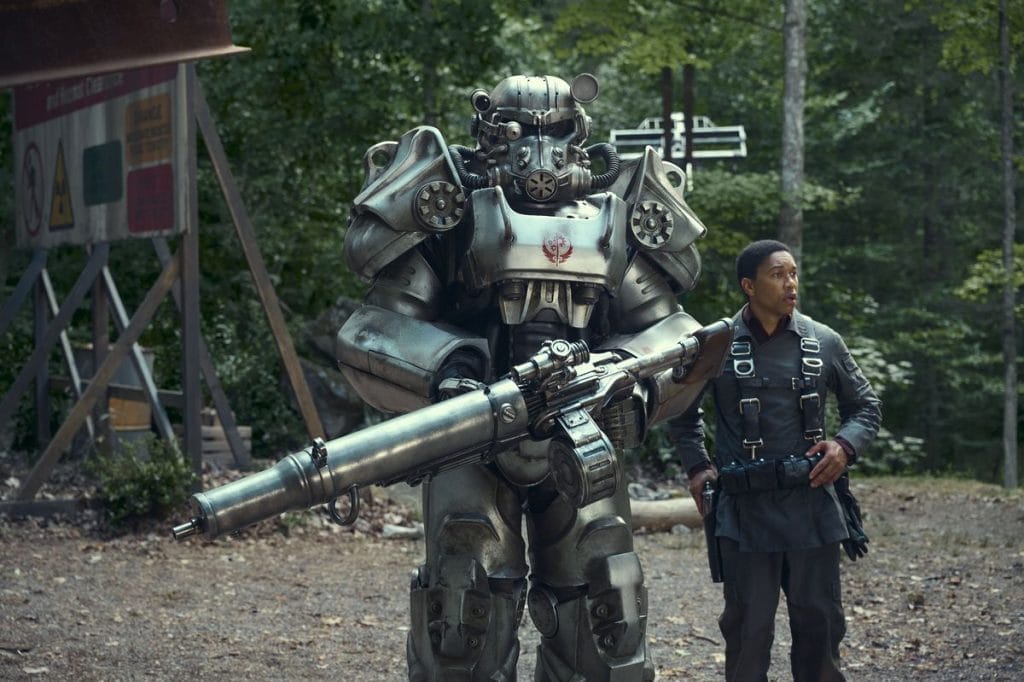
Remember when video games were good? I know good games come out all the time but take my blanket statement at face value for a second. Recently it feels like every triple-A developer is just rehashing old games and not taking any risks. I remember a better time, a time when big studio games felt like a labor of love and not a cash grab. For me, there is no better example of a game studio that used to be amazing but has fallen from grace recently than Bethesda. Their Fallout series is a perfect example of this, Fallout 3, Fallout: New Vegas, and Fallout 4 were amazing games, probably some of my favorite games of all time. It seemed like they could do no wrong. But everything changed when the micro-transactions attacked… Today, Bethesda is run by greedy little piggies who have no idea what their player base wants and just continually re-releases their rapidly aging catalog of hit games with minor graphical updates so they can continue to charge the consumer full price for ten-plus-year-old games. At one point, many moons ago, they created and released fun and creative games, and the Fallout series, for me, was their peak.
For those of you who have never played any of the Fallout games, it’s a first-person and/or third-person role-playing game set in an alternate, retro-future timeline of America. In this timeline, EVERYTHING is nuclear-powered, and I mean everything. Televisions, microwaves, cars, robots, and there is even a soda called “Nuka-Cola” which is radioactive. Well, when everything is nuclear-powered, it’s pretty easy to assume that every single country in the world would probably have a sizable stockpile of nuclear missiles as well. That assumption is correct, and unfortunately, those countries decide to nuke the shit out of each other. I guess we only see that America was nuked but I’m going to assume that we responded before we were reduced to radioactive dust. Isn’t mutually assured destruction wonderful? The thing is, some people were prepared for this nuclear armageddon, they had “insurance.” The insurance was that they had paid to be locked into giant underground vaults. These vaults were built to ensure the survival of the human race in the event of nuclear war and they are set to open once the surface is habitable again.

In the Fallout games, you play as a “vault dweller” who, for one tragic reason or another, has decided to leave their vaults and enter into the unknown surface above. The exception to this case is Fallout: New Vegas where you actually play as, what is essentially, a vengeful mailman. Regardless, while one would assume that the surface is a barren landscape after the nukes, that is anything but the case, people survived, but they did not thrive. The surface is full of mutants (both human and animal), raiders, religious knights in power armor, mad scientists, and much more, all battling for control of the wasteland in an attempt to fill the power vacuum that was left behind when every government ever fell. From there, what’s left of the world is your oyster.
That overstuffed paragraph is a brief overview of the world of Fallout. I’m honestly barely scratching the surface here. With a story that rich, it’s only natural that after the massive success of HBO’s The Last of Us T.V. adaptation, other studios would want to cash in on the video game television show hype. I’m sure we won’t get tired of it… Well, Amazon adapted Fallout into a television show, and let me tell you, it’s awesome. The Fallout show follows three different characters whose paths intersect but for the sake of this blog, I’m mostly going to focus on Lucy MacLean played by Ella Purnell. Lucy is a vault dweller whose family has lived in the vaults for many generations. Well, something happens that I don’t want to spoil and she has to leave the vault. There she faces the wild world of the radioactive wasteland that was once Los Angeles.

If you haven’t figured out why I’m writing about this show on an Alice in Wonderland-themed website by now, it’s time to realize you might not be as smart as you think. I’ll put it in terms you can understand. Woman lives in a world where things make sense to her, goes in a hole, and enters a world where everyone is crazy and must learn rules to keep her head. Fallout is Alice in Wonderland. Replace a rabbit hole with a vault door, the whimsical nature of Wonderland with the wildness of the Wasteland, and the Jabberwocks with Deathclaws, and boom it’s the same story. People even lose their heads in the show too. Now, you might not be completely sold on this fact but lend me your ears, or I guess eyes in this case, and by the end of this blog, I will have you shoving this fact down people's throats too.
I’ve already given an overview of the Alice character, Lucy, but I want to go a bit deeper before tackling the other characters. Okay, I said there wouldn’t be spoilers but I lied skip to the next paragraph if you don’t want any… One.. Two… Three… Spoilers, the first person Lucy meets perfectly sets the stage for my argument that she and Alice are the same character. Lucy meets a person living on the surface who is trying to use a machine that will extract water from whatever is put in it. This person is struggling to use said machine because when he puts sand in the hopper, only sand comes out. Which is a problem we have all had. In his mind, the machine is broken, but to Lucy’s logical mind, dry sand can’t be turned into water. Their interaction mirrors many of the interactions Alice has in Wonderland. Where Alice explains that something a Wonderlander is doing is “illogical” to her but the Wonderlander finds it perfectly logical. After Lucy and the Wastelander’s brief interaction, the Wastelander asks Lucy if she wants to marry him because she gave him water. Not in a hyperbolic way, he means it. He even shows all the great stuff he has to offer, like his sand. In his mind, this is a perfectly reasonable question to ask.

I lied about the spoilers ending here, go to the next paragraph to truly skip the spoilers… Another example of the Wasteland essentially being Mad Max: Wonderland is in a scene where another character, Maximus played by Aaron Clifton Moten, saves a man who is about to be killed by another person. On the surface, it seems as though the would-be killer is a crazy person. It turns out that the victim he had rescued, who claims to be a “scientist” was having biblical relations with the “aggressors” chickens. Killing someone for fraternizing with poultry is pretty logical. There is a choking the chicken double entendre joke opportunity here but that’s too blue for me to say… Hey, don’t get mad at me, you’re the one who came up with it in your filthy minds… How is this Alice in Wonderland related? Well, I would argue that this scene is meant to establish the madhouse that is the Wasteland and those who inhabit it. The man who was trying to protect his birds even says the fact with an air of exhaustion in his voice, as if this isn’t the first time this has happened and probably won’t be the last. It’s just the world he lives in. Maximus has grown up on essentially an army base his whole life so the wilds of the wasteland to him are just like the wilds of Wonderland for Alice. Things just are the way they are because that’s how they are.
The Fallout television show doesn’t just share a lot of similarities with Alice’s Adventures in Wonderland, it also has characters eerily similar to other Alice-related IPs. Take Cooper Howard a.k.a. “The Ghoul” played by Walton Goggins. First, because I have to, a “Ghoul” in the Fallout universe is a human who has been exposed to high levels of radiation, causing their flesh to melt. Due to their appearance, they are essentially second-class citizens. The terrible hand they have been dealt is compounded due to the radiation affecting their minds as well, all ghouls are slowly going feral and without constant medication will eventually become essentially human-shaped animals that kill and eat anything that moves. Well, Cooper Howard is a bit of an antihero in this show. He’s survived in the Wasteland for hundreds of years and knows the rules of this world and how to navigate it. He’s a badass bounty hunter who’s honed his fighting skills living in a harsh environment. Nothing surprises him and his gruff exterior shields a tormented past. He instantly reminded me of a character created from the mind of my overseer, Frank Beddor. That character is Hatter Madigan, Frank’s version of the Mad Hatter. While Hatter Madigan is an elite member of the Millinery, in the Looking Glass Wars novels, he wanders the globe looking for Alice. Wherever he goes, tales of his epic deeds follow. Much like The Ghoul. Plus they both wear long coats.

If I haven’t sold you on the fact that the Wasteland is Wonderland, Lucy is Alice, and that Fallout, whether the writers of the games knew it or not, is quite similar to Alice’s Adventures in Wonderland, I have one final thing to drive my point home. Let's look at the mysterious antagonist of the Fallout T.V. show, Lee Moldaver. I haven’t finished the show yet and my internet is down at the moment, but from what I’ve gained from the six episodes I have seen, she is a powerful woman whose name alone strikes fear into the hearts of those who live in the Wasteland. Just like the Red Queen/Queen Redd does in Alice’s Adventures in Wonderland.
When a piece of media is so popular and transformative to storytelling as Lewis Carroll’s Alice’s Adventures in Wonderland was, it’s not hard to notice similarities in all the media that comes after it. The basic premise of Alice’s Adventures in Wonderland is the perfect foundation for a fantastic story. If done correctly, like the Fallout series, it’s a recipe for success. Due to this, it’s easy to see why Alice has endured for as long as it has.

Jared Hoffman graduated from the American Film Institute with a degree in screenwriting. A Los Angeles native, his brand of comedy is satire stemming from the many different personalities and egos he has encountered throughout his life. As a lover of all things comedy, Jared is always working out new material and trying to make those around him laugh. His therapist claims this is a coping mechanism, but what does she know?